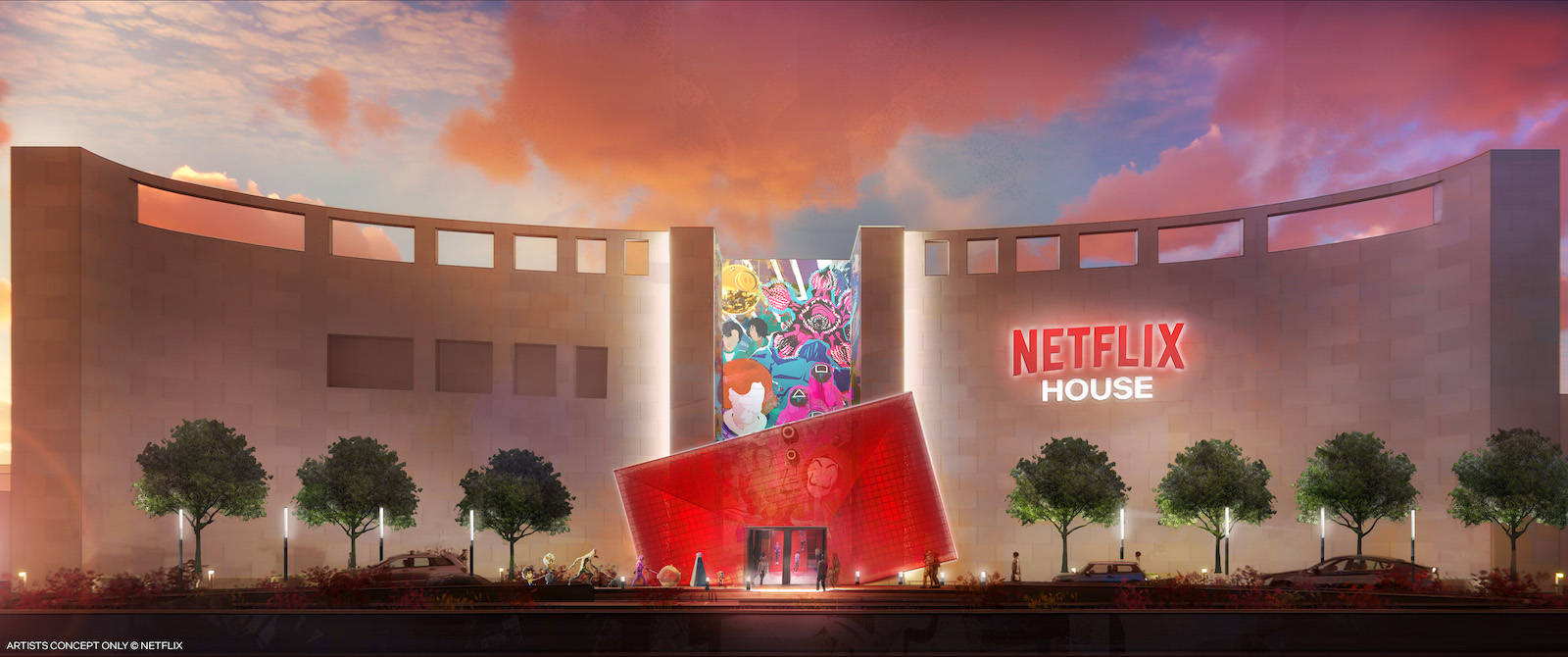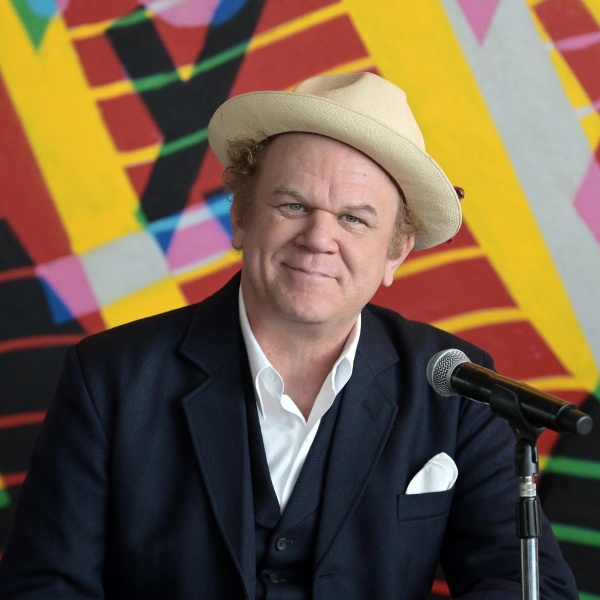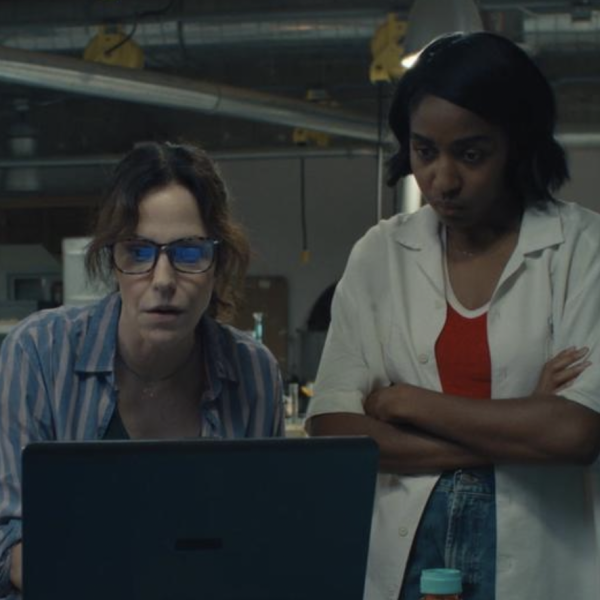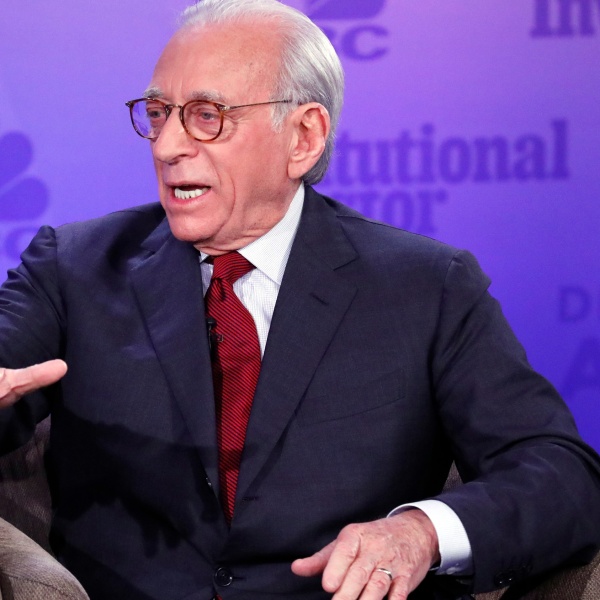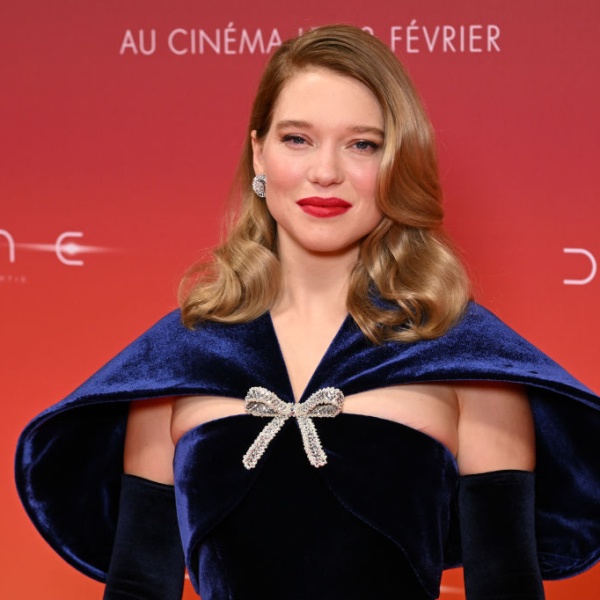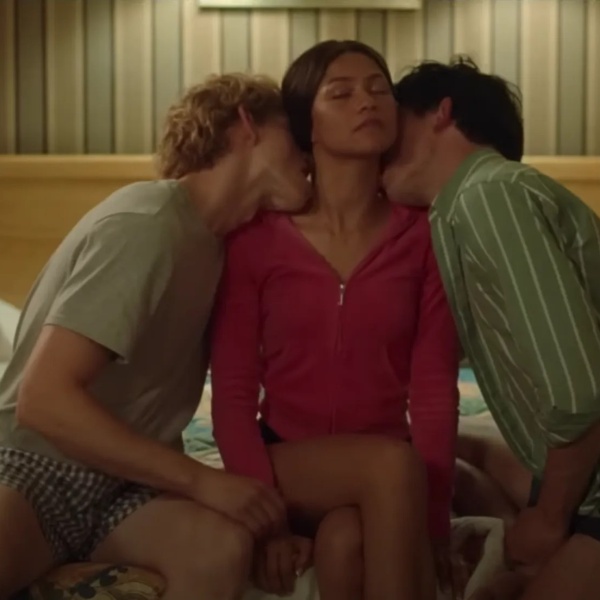Netflix is the expert at getting us to stay on our couches. So why does it want us to leave our house and go to the streamer’s?
In 2025, Netflix will launch “Netflix House,” aka brick-and-mortar fan venues located in former department stores in Dallas, Texas, and King of Prussia, Pennsylvania. They will offer food, shops, and immersive experiences based on and inspired by Netflix shows and films. Your local zombie mall could have a new lease on life as a Netflix theme park.
Details remain scant, but the Netflix announcement referred to waltzing in a “Bridgerton”-inspired ballroom, competing in a “Squid Game” challenge (and, we presume, living to tell the tale), and buying a Hellfire T-shirt at a “Stranger Things” shop. Maybe they’ll also have a bakery with cakes that don’t look like cake.
Pop-up experiences aren’t new to Netflix; it’s executed Netflix Bites and live fan events around shows like “Stranger Things” and “Squid Game” for years. (Netflix declined to comment on attendance figures.) As an “experiential entertainment venue,” Netflix House would put those experiments into one place year round — all updated according to the streamer’s release calendar.
Irving J. Rein, a professor of Communications Studies at Northwestern University who specializes in pop culture, told IndieWire that he can envision a Netflix House popping up in every state. As malls see retail dwindle, they offer cheap and abundant space and many malls have already shifted to the experiential.
“It would open up a whole new avenue of revenue,” Rein said. “Times are tough in the business.”
However, running elaborate, immersive experiences is expensive. Does Netflix think the Houses have Disney World-level potential to build its brand?
“There’s a lot of investment going into it and things you need to think through, like ticketing, the event experience itself, the use of technology, the guest experience. It’s certainly a risk,” said Dr. Stephen Pratt, a professor and department chair with the Rosen College of Hospitality Management at the University of Central Florida. “They want to cut down on the leakage in market share in that streaming environment. Some things might work and some things might not, and that’s the risk of being innovative.”

Pratt envisions Netflix attracting superfans and the cosplay crowd as well as those looking for more of an escape room vibe. Because Netflix’s audience skews older than Disney’s, he believes the streamer has a chance to make it work with young adults and further increase audience engagement with its most marquee brands.
The biggest risk Netflix takes with its brand stems from fans’ high expectations. Authentic immersive experiences are a high bar; achieving profitability is next level. Just ask Disney how the Star Wars Galactic Starcruiser hotel went.
“It can’t be a carnival comes to town with a C-rate amateur local theater production,” Pratt said. “If there are any sort of shortcuts or skipping on the attention to detail, you can imagine it will get quite harsh reviews.”
That can require walking a fine — and expensive — line. Beth Novak, the interim dean of the Honors Tutorial College at Ohio University, co-teaches a theme parks course. She said to make something truly immersive with lots of world building is not just costly, it also doesn’t lend itself to being temporary. That could be a problem when Netflix needs to switch things up inside the House to highlight its latest big show.
“If it’s too modular, it’s not going to feel immersive. But if it’s too deeply designed, it’s not going to be able to be changed,” Novak said, adding that none of that will be possible if the staff isn’t very well trained.
“I’m not sure you’re gonna get that in King of Prussia,” she said.

Netflix does have a fair amount of IP, Novak said, but unlike Disney, “they don’t have a deep bench, and we don’t have nostalgia for their IP.” That poses a challenge: While Netflix has seen turnout for its pop-up experiences, they don’t rely on repeat customers like malls or theme parks. Novak said Disney World’s consumer base is 85 percent repeat visitors, and that will be a tall order for Netflix to match or even approximate.
“It’s not going to be for everybody, especially if they want to make it a really authentic, immersive experience,” Pratt said. However, he added that opening in Dallas and Pennsylvania are lower-risk opportunities that could precede expansion in locations like Las Vegas, Orlando, and Los Angeles.
However, Novak is skeptical that Netflix could maintain quality and consistency across multiple locales, not to mention financial sense. To encourage more travel, her recommendation would be to vary the experience at each spot — not unlike Meow Wolf.
“It will be interesting to see what Netflix wants to invest in this and how deeply they wanna go — and if it works,” she said.
